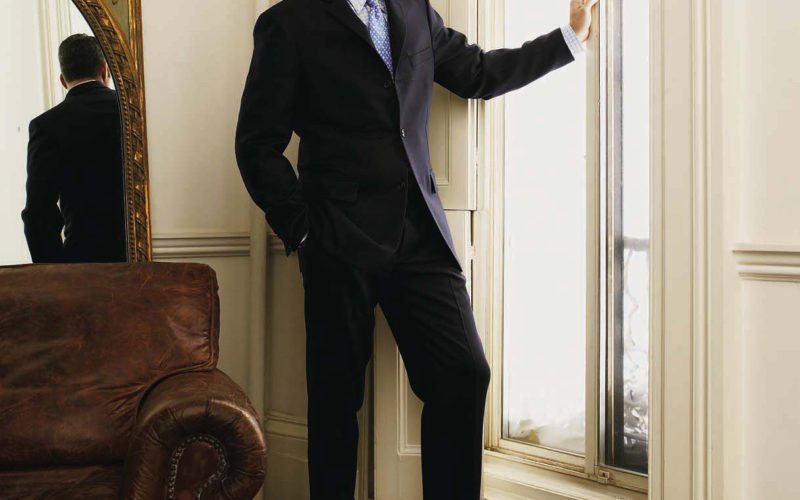Q. In a recent question, you referred to “ button-down shirts.” I am not exactly sure what kind of shirts you meant.
A. This is one of several men’s clothing terms that are confusing either because they have more than one meaning or because they are sometimes used in more than one way.
The correct use of the term “button-down” is to describe a specific shirt collar style. The actual term is a “button-down collar shirt” or a “shirt with a button-down collar.” Often, this is shortened and written as a button-down shirt; when used this way, the word “collar” is implied and widely understood.
The dictionary definition is “having the ends of the collar fastened to the garment with buttons” as in the widely-worn, traditional Brooks Brothers shirts with the collar points buttoned to the shirt.
Often people apply the term in another/incorrect usage: calling any standard button-up-the-front shirt a button-down shirt. That is, as distinguished from a pullover (T-shirt, boat neck, half-zip shirt, etc.) or an actual button shirt (polo, rugby, Henley). While “dress shirt” is often the term for these, many of them are not dress shirts at all, but sport shirts. Some people refer to them as button-fronts. The truth is there is no term in the clothing industry or in common usage for this.
Yet one more aspect of the term “button-down” is its use as an adjective to describe such qualities as rigid, conservative, traditional, up-tight, unimaginatively conventional, or old-fashioned, when used to describe someone’s clothing, behavior, attitude, or beliefs. It may refer to a person, a political climate, or an industry.
It may project either a negative or a positive image, although more often, it has a slight put-down tone. As an example: “His button-down personality set him apart from the more adventuresome types in his office.”
Not only are these the generalizations and thoughts that people associate with button-down collars, they are also often the assumptions others make when you wear such shirts.
Here are a few elements that are associated with button-down collar shirts:
- They are the most casual of the various dress shirts;
- They are too informal for French cuffs, thus, are made with barrel (button) cuffs;
- They are too casual to be paired with dressy, dark pin-striped suits. They’re ideally suited for solid-color medium-dark suits, khaki suits, and summer seersucker suits;
- They’re almost a requirement for striped Oxford cloth dress shirts and patterned sport shirts;
- The most “correct” button-down collars are not pulled taut, but have a soft “roll” instead;
- They project a quiet, tasteful, upper class, Ivy League, preppy, and/or professorial air;
- They are incongruous with slick, super-slim tailoring and also with the total opposite: shoulder-padded double breasteds with wide neckties in Windsor knots;
- A four-in-hand necktie knot is the ideal choice, or wear the shirt open-at-the-neck.
Please send your men’s dress and grooming questions to MALE
CALL: Lois.Fenton@prodigy.net









